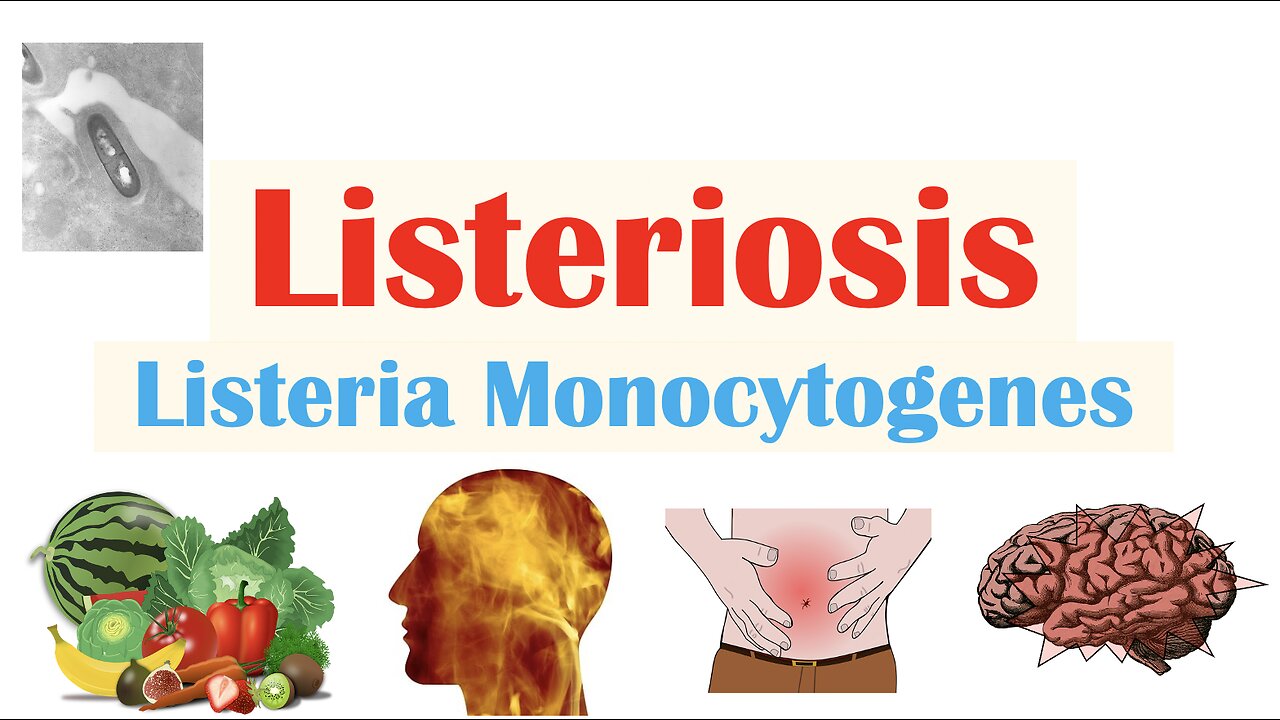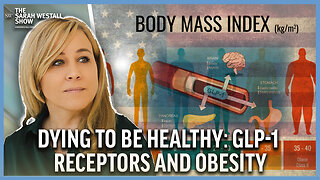Premium Only Content

Listeriosis (Listeria Monocytogenes) | Sources, Pathophysiology, Symptoms, Diagnosis, Treatment
Listeriosis (Listeria Monocytogenes) | Sources of Bacteria, Pathophysiology, Symptoms, Diagnosis, Treatment
Listeriosis is a condition caused by infection with the bacteria Listeria monocytogenes (L. monocytogenes). L. monocytogenes can be found in a variety of sources including contaminated foods like unwashed raw vegetables, uncooked/undercooked meats and processed deli meats among others. With improvements in sanitation and food inspection standards, the prevalence of this condition has been declining over the past several decades. However, smaller outbreaks can still occur, and this is important as this infection can be dangerous to patients who have compromised immune systems, including those with HIV, newborn babies, elderly patients and patients with diabetes. In this lesson, we discuss the pathophysiology by which listeria uses particular important virulence factors to invade the host, the signs and symptoms that occur in both immunocompetent patients and in patients with poor immune system functioning; we’ll also discuss how clinicians diagnose and treat this condition including ways to prevent it from occurring in the first place.
I hope you find this lesson helpful. If you do, please like and subscribe for more lessons like this one!
JJ
REFERENCES:
StatPearls (2023) - Listeria Monocytogenes
https://www.ncbi.nlm.nih.gov/books/NBK534838/
**MEDICAL LEGAL DISCLAIMER**: JJ Medicine does not provide medical advice, and the information available on this channel does not offer a diagnosis or advice regarding treatment. Information presented in these lessons is for educational purposes ONLY, and information presented here is not to be used as an alternative to a healthcare professional’s diagnosis and treatment of any person/animal. Only a physician or other licensed healthcare professional are able to determine the requirement for medical assistance to be given to a patient. Please seek the advice of your physician or other licensed healthcare provider if you have any questions regarding a medical condition.
-
 3:56:44
3:56:44
Alex Zedra
13 hours agoLIVE! Trying to get achievements in Devour
201K26 -
 2:00:43
2:00:43
The Quartering
16 hours agoThe MAGA Wars Have Begun! Vivek & Elon Get Massive Backlash & Much More
210K90 -
 1:25:53
1:25:53
Kim Iversen
3 days agoStriking Back: Taking on the ADL’s Anti-Free Speech Agenda
136K110 -
 49:35
49:35
Donald Trump Jr.
20 hours agoA New Golden Age: Countdown to Inauguration Day | TRIGGERED Ep.202
251K261 -
 1:14:34
1:14:34
Michael Franzese
18 hours agoWhat's Behind Biden's Shocking Death Row Pardons?
96.5K54 -
 9:49
9:49
Tundra Tactical
17 hours ago $29.09 earnedThe Best Tundra Clips from 2024 Part 1.
179K15 -
 1:05:19
1:05:19
Sarah Westall
17 hours agoDying to Be Thin: Ozempic & Obesity, Shedding Massive Weight Safely Using GLP-1 Receptors, Dr. Kazer
142K37 -
 54:38
54:38
LFA TV
1 day agoThe Resistance Is Gone | Trumpet Daily 12.26.24 7PM EST
96.3K13 -
 58:14
58:14
theDaily302
1 day agoThe Daily 302- Tim Ballard
87.8K15 -
 13:22
13:22
Stephen Gardner
20 hours ago🔥You'll NEVER Believe what Trump wants NOW!!
134K375